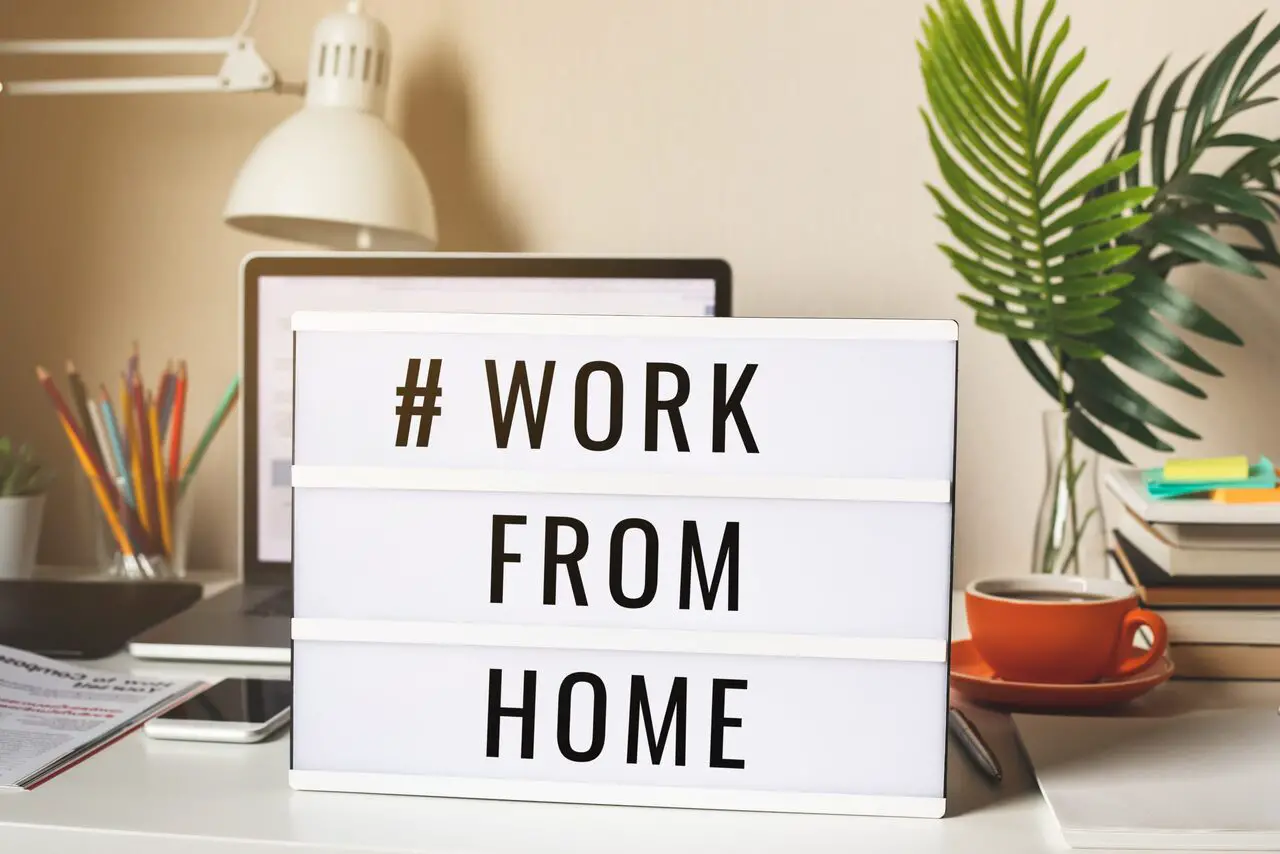The world has seemingly come to a stop. If you look at a live feed of Times Square right now, you will notice that foot traffic (and regular traffic) is exceptionally sparse, and almost every single shop is closed. Thanks to COVID-19, colloquially known as the “coronavirus,” governments across the map have mandated stay-at-home orders so that we all can practice social distancing.
Social distancing is extremely important in helping us “flatten the curve,” but it has also brought about a lifestyle change for which many, many people were unprepared. We are all working from home—if our workplaces are even operating at the moment—and it has been quite the adjustment.
My name is Lily. I am a 20-year-old student attending university in New Jersey, and my school has decided to transition to online classes, meaning that everybody can go home and do their work there. I am still living on my college campus due to extenuating circumstances, and let me tell you—it is a ghost town. The most human interaction I have had is with the workers who provide my food, and even then, I have to stand behind a pole 6 feet away.
Now, as any student who has taken out egregious loans would, I have taken advantage of this time to work. Of course, because of the stay-at-home order, all of my work has to be done remotely.
My boss, Gita, and I tried this once before. When I left for college, I wanted to work from home and avoid over an hour of driving in rush hour traffic. It never worked; I could not adjust well to working outside of the office. With class, and friends, and food, and every other possible distraction right in front of me, it felt nearly impossible.
Not to mention how much of a struggle it was to communicate effectively. I communicate best in person; if you asked me if I would rather text or talk on the phone, my answer will almost always be talk on the phone. The message is clearer if you are able to hear the person and even more so if you can see them. So I preferred working in the office and being able to turn to Gita and ask her a million questions.
With the quarantine in effect, however, I do not have a choice. It is either work from home or don’t work at all. I think we all know what the smart choice is.
So here I am, working from my dorm room, and this time, I am making it work. Why is it working this time? How do I do it?
Get the Right Instruments
You can’t make music without the instruments (or, in our case, tools). Well, I have a wealth of tools at my disposal—it was just up to me to make sure that I used them productively. Here are some of the tools we used to make it work from home (haha!):
- Lists. I have a list of projects that need to be completed. Every project is hyperlinked to the necessary documents and sources, and we regularly change the project status—if I need to start it or take a look, it’s under my name, and once I finish, I put it under my boss’s name or mark it as complete. It is a simple, foolproof system.
- Check-ins. There is nothing that makes you work like somebody holding you accountable for your work. Gita regularly checks in and I regularly update her, whether it is over a phone call or a quick text.
- Phones. Normally, we would make phone calls whenever one of us had a question for the other. I am currently without phone service, though, so we have been making use of FaceTime audio. As long as you have internet, it is just as clear and effective as a regular phone call!
- TSheets. Having a system that helps you track the time you are working is essential, especially when you find yourself having to work from home. TSheets is very simple—I use the app on my phone to clock in and out of work. You can see your day total, week total, and how many hours you have worked per pay period.
- RingCentral/Zoom. Not only has my university been employing Zoom as a way to conduct business as usual, but so have we—along with RingCentral. There are some projects that I cannot complete from my laptop, but Gita gives me access to hers via RingCentral, so it is like I am right there in the office!
- Google Drive. Google Drive is a lifesaver. That is where we keep our ongoing lists, as well as any documents, articles, and important links. On top of that, we are able to work collaboratively on the same project, so the work gets done much more efficiently! If we cannot figure something out, we call each other and talk it over, and we are looking at the same document while doing so.
- Grammarly. Now, this is a tool I use both in and out of the office, but it is worth mentioning. If you are on a roll with your report, it is easy to hit the wrong letter on the keyboard or mess up the grammatical structure of a sentence. That is where Grammarly comes in—it catches these mistakes for you, and underlines them in bright red so it’s hard to miss!
- WordCounter.Net. This is a lesser-known weapon in my arsenal, but it is powerful. I am sure you can assume that it gives you a word count for your blogs, but that is not what is so great. You also get other details, such as reading level and reading time, and information pertinent to SEO! WordCounter.net informs you of your keyword density for single words, 2-word phrases, and 3-word phrases, so it is perfect when you need to gauge how well you will perform on Google!
There are times when I use other websites and programs, but these are the ones that I use every single day, and they are part of the reason why I have been able to be so productive, even when I feel like a caged animal.
Learn How to Play
However, tools are not everything. There is more to it than having the right programs to use—even if you have all the right instruments at your disposal, that does not mean you know how to make the most of them. That was my problem in the beginning, but it is no longer my problem now. As part of one of the most easily distracted age groups (the generation who grew up with technology), I have developed the most successful routine for working outside of the office, and it is because I have implemented these tips into my day-to-day:
- Minimize the potential for distractions. Try to designate a space in your home (or wherever you are staying) specifically for getting work done. Clear the space of any distractions. I use my desk in my room as it is the only space available, so I make sure that there is nothing on it besides my laptop, a pen, and a notebook.
- Put your phone away. Phones are one of the most common distractions, and understandably so. There are social media, games, texts, and just about everything else—so put it away unless you need to use it for work. And even if you do, you can squash the temptation by blocking certain applications.
- Try not to work around food. This sounds silly to some people, but working around food can be so distracting. Whether it is the smell, the sight, or just the fact that you are bored with work, having food readily available while you’re working can negatively impact your productivity.
- Make sure you eat, though! Some people like to power through the day without a meal in between, and if you can do that, kudos to you! However, it is highly unlikely that you will be able to work at your maximum potential without some sustenance, so make sure you take a lunch break somewhere in there!
- I have to walk to my school’s dining hall to grab all three meals at once, so I do that during my lunch break. This is the aforementioned sweet taste of social interaction I get every day. Even though the workers are wearing masks, gloves, and will not come within six feet of me (making me feel as if I am radioactive), it is still nice to know that other people exist outside of my room.
- Sweats are not always your friend. This might just be me, but if I put on a pair of sweatpants, it is ten times harder for me to be productive. Not only am I too comfortable, but it does not put me in the right mindset. If you can, I suggest at least putting on jeans or a nice blouse.
- Let others know you are working. I don’t really have the problem anymore because I am practically by myself on campus, but if you have kids, a spouse, or anybody else living with you, make it known that you are working and do not want to be interrupted unless it is an emergency. If you tell people beforehand, they tend to take it more seriously and respect your space.
- Avoid burnout. This is something else that I struggled with before, but I am very cautious to avoid it now. If I am sitting, staring at my computer screen for much too long, I get exhausted. If you start to lose focus or cannot get anything done, take a five- or ten-minute break. Go outside. Have a snack. Drink some water. Recharge yourself so you can come back to the computer feeling as fresh as a daisy.
- Outline a plan. Almost every day, Gita and I talk about what I am going to get done that day. That way, as I mentioned before, I know that somebody else is holding me accountable. You should also reach out to your supervisors, colleagues, and subordinates to outline a communication plan that works best for all parties.
COVID-19 is hitting us hard, and the best thing we can do is stay home to stop the spread. That does not mean that our whole lives have to stop, though. If you implement the right strategies and commit yourself to a task, you can work from home just as productively as you do—or even more productively—when you are in the office.
(Note: If you run your own business and are worried that you might sink alongside the economy, check out these tips for keeping your business afloat during a recession.)

